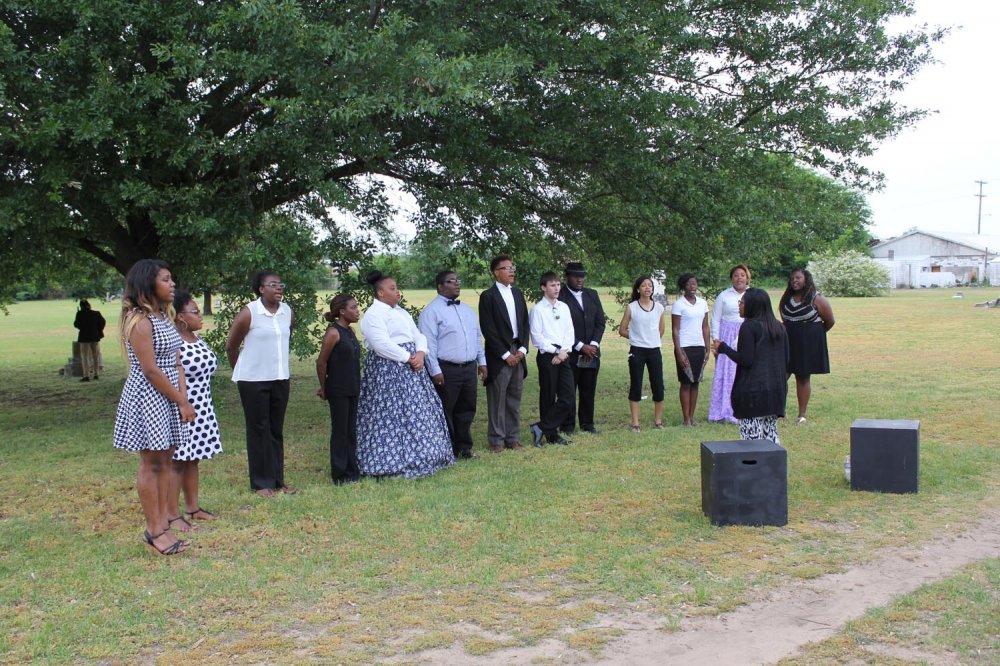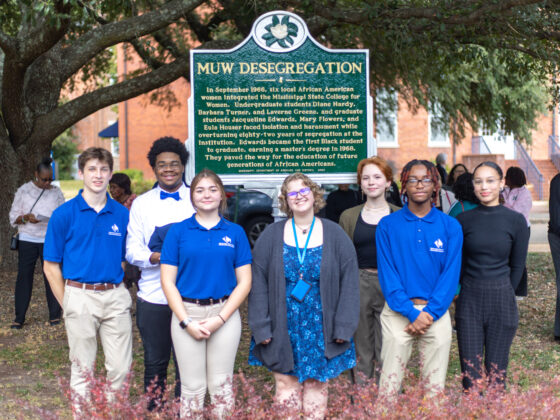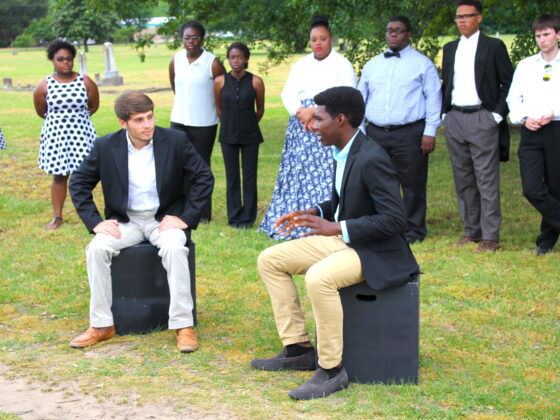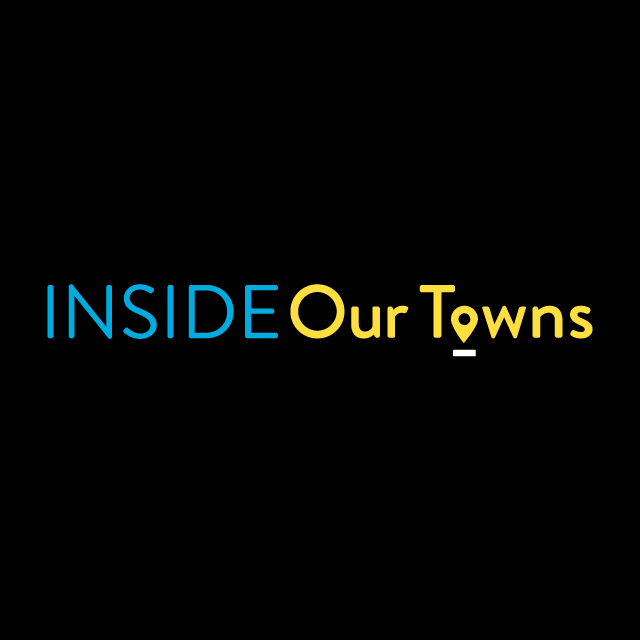Since the fall of 1995, I have taught history to 11th and 12th graders at Mississippi’s residential public high school, the Mississippi School for Mathematics and Science. MSMS is open on a competitive basis to students from all across the state. Working with young people from every geographic region of our state, I have developed research/performance projects that have served as models for programs in other areas. These experiences have not only fostered critical thinking among my students but also provided opportunities to contribute to our broader community. I like to say we are developing an “ethic of community participation” that will one day become an “ethic of leadership.”
The Eighth of May Emancipation Celebration project in Columbus, Mississippi, began with a realization that our community was hindered, in part, by regularly celebrating an incomplete understanding of our past. In a state where some joked “History is a growth industry” and where the African American population was the majority of the state and county population for over a century, the history and story of our community’s black citizens was hardly evident during annual celebrations and almost entirely absent from public memorials and historic markers. In fact, as the 21st century began, I was aware of only one state historic marker in our community that even mentioned the black community – and that was in the final sentence of a “C.S.A. Arsenal” historic marker that indicated, really as an afterthought, that a Confederate arsenal building was later the site of Union Academy, the first public school for African Americans in our community.
In his recently released “A Place Like Mississippi,” Ralph Eubanks has written that our past in Mississippi “lingers” and that if our past is not “confronted constructively” it can be destructive. He also observes, “In the South silence about difficult topics is a preferred method of social control.” With regard to our community’s African American story, the historical silence was deafening, and that silence was one factor holding back our community and state, limiting our progress.
Education can give a voice to the all-too-often silenced. So, during the 2005-06 school year, my African American History class created a platform for those voices. In partnership with our student-led Voices In Harmony choir, on the date Union troops arrived in Columbus in 1865, our MSMS Eighth of May Emancipation Celebration demonstrates that by learning and studying our past, our students can shape our future.
As a result, today our community has a firmer understanding of the contributions and challenges of individuals, like state Senator Robert Gleed, a business and political leader whose supporters suffered and died at the hands of a violent mob as they prepared to exercise their right to vote. Or like his daughter Anna Gleed, a teacher at Union Academy – a school whose teachers were threatened with hanging in the first months of its existence but also a school which freed men and women stood guard over for weeks to protect their chance at education and advancement.
Or like Richard Denthrift Littlejohn, a publisher who was not only a delegate to the 1896 Republican National Convention but also joined an effort to integrate the national convention of Masons in 1893. Or, like professor William Isaac Mitchell and his family; or, like businessman Allen Rabb and his extended family; or, like … The list goes on and history continues to be studied and learned as these names become more common on the tongues of students and to the ears of the community. (A portion of the presentation is featured in the HBO documentary “Our Towns.”)
These, as well as others whose stories we’ve shared through performance, were individuals who helped weave the fabric of this community during the late-19th and early-20th centuries. Not acknowledging their contributions as well as the broader African American community they represented was like holding up a quilt to admire, only to recognize the defining feature of its nature of incompletion.
Over the past 15 years, our community has embraced a more complete telling of our history. A state historic marker now graces the historic Sandfield Cemetery, placed there through a City partnership with one of the local garden clubs. A monument celebrating 155 years of education at Union Academy was erected last year. Multiple state historic markers and Mississippi Blues Trail markers have been erected in our community celebrating our African American story. An African American Heritage tour brochure was published utilizing information uncovered by myself and my students. It seems Columbus has moved closer to recognizing our community’s progress and future are, at least in part, dependent upon understanding and celebrating all of those who have contributed to our present.
People in other parts of the country have shown great, and increasing, interest in hearing the story of how we now tell our history more fully because Columbus, Mississippi is not alone in its uncomfortable ignoring of its past, its awkward silencing of certain parts of its story. And, I’ve been invited to share our story because others want to know if they might be able to follow in our footsteps.
While teachers or community leaders have wanted to know more about instituting similar programs at their schools or in their communities, I’ve also been met with folks who have essentially said, “That won’t work for us” or “We couldn’t do that in our town.”
My response is, “Yes, it can work for you”, and “Yes, you can do this in your town.”
If students from across Mississippi can give voice to the silenced in Columbus and work together to confront difficult topics constructively, it can be done in your town, too.
If members of our community can learn about their neighbors’ ancestors with a heart open to acknowledging injustices while also celebrating triumphs, it can be done in your town, too.
“Our Towns” is part of a growing body of evidence that across this great country people are helping their communities grow and progress. They are doing so by working together to confront difficult topics constructively.
They realize the world you can change really is the world you can reach out and touch. I believe this in my bones.




